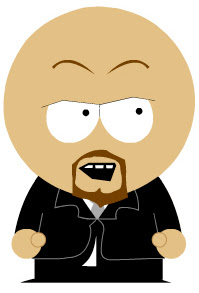 Source Material: Jackie, Ethel, Joan: The Women of Camelot by J. Randy Taraborrelli
Source Material: Jackie, Ethel, Joan: The Women of Camelot by J. Randy TaraborrelliDirector: Larry Shaw
Teleplay by: David Stevens
Year: 2001
Cast Highlights:
Jill Hennessy: Jackie Kennedy
Lauren Holly: Ethel Kennedy
Leslie Stefanson: Joan Kennedy
Daniel Hugh Kelly: John F. Kennedy
Robert Knepper: Robert F. Kennedy
Matt Letscher: Ted Kennedy
Harve Presnell: Joe Kennedy
Charmion King: Rose Kennedy
Sarah Lafleur: Marilyn Monroe
Thom Christopher: Aristotle Onassis

The Kennedy family's trials in the 1960's hardly require dramatization. From the assassination of John Kennedy in 1963 to Ted Kennedy's car accident/manslaughter at Chappaquiddick in 1969, the tales of Kennedy promise have been told and retold until they've become part of the American mythological landscape. That having been said, these events have been cemented in a series of classic moments: footage of John Kennedy being serenaded by Marilyn Monroe, the image of a stunned and bloodstained Jackie standing next to Lyndon Johnson, a black and white photo of Robert Kennedy laying on the floor of a hotel kitchen, and a glimpse of Ted Kennedy in a cartoonishly outsize neck brace standing beside his silent wife.
What is lacking from this tableaux is a real understanding of the human impact of these moments. While we may wink at the sexual excesses of our 35th President, we rarely think about how hard it was for his wife to watch Marilyn Monroe's seduction of him on national television. Similarly, while America focused on Ted Kennedy's craven and self-serving actions during the Chappaquiddick scandal, we rarely consider the emotional impact that it must have had on his wife.
By narrowing its focus to the Kennedy wives, Jackie, Ethel, Joan makes the Kennedy tale seem fresh and relevant. Presented as a collection of character studies, placed against a powerful historical backdrop, the movie shows three ways that women wielded power in an era when they were supposedly powerless. The ultra-feminine Jackie, who varies her voice from breathy to firm depending on the circumstances, emerges as a proud woman who uses traditional feminine wiles to accomplish her goals. Joan, who seems like a shrinking violet against the more boistrous Kennedys, shows incredible power and determination when she isn't crushed by her lout of a husband. Finally, Ethel combines raw ambition, outspokenness, and a sense of entitlement into a package that makes her famously ruthless husband seem like a milquetoast. Utilizing more traditionally male forms of power, she pushes a reluctant Bobby to pursue his destiny.
The performances of the three principals are quite good. Jill Hennessy's Jackie is simultaneously fragile and strong, a master of feminine power. Leslie Stefanson's Joan is not quite as well formed, but Stefanson does a solid job of conveying the pain of a woman who constantly sublimates her own incredible potential in the service of a mediocre mate. Ultimately, though, Lauren Holly's Ethel steals the show. Previous films have reduced Ethel to the role of a silent garnish for the great Bobby, but Holly presents a woman who is brassy, funny, ambitious, brilliant, and powerful. Jealous of Jackie's charm and poise, Holly's Ethel compensates by (literally) beating the boys at their own game. As a rough-and-tumble tomboy, she grabs the spotlight for herself and her husband.
Overall, the physical similarities between the actors and the historical figures vary wildly. At the embarrassingly poor end of the scale, Robert Kneper's Bobby neither looks nor particularly sounds like the real thing, and Sarah LaFleur is a puffy, bloated cartoon of what Marilyn Monroe might have become had she ended up working as a lounge singer or a prostitute. Daniel Hugh Kelly does a great job. While there often seems to be little physical resemblance between the two men, from certain angles, Kelly completely channels the dead president. Regarding the three wives, Hennessy and Stefanson look very much like Jackie and Joan, while Holly doesn't really resemble Ethel.
One last note: with precious few exceptions, the men tend to blend together, while the women in the story are very distinctive. During certain scenes, particularly parties and celebrations, the men appear to be merely backdrops to the social dances of the women. This perspective, a reversal of the traditional take on the Kennedy's, is brilliantly done, and eloquently makes the point that the Kennedy women, as much as the Kennedy men, maintained the careful social balance that made "Camelot" possible.
 Memorable Quotes
Memorable QuotesJackie (to Joan): You've got to build your own life within this Kennedy world.
Joan: What about Ted?
Jackie: He's just like his brothers. No one women is ever enough for a guy in that family.
Joan: And you just live with it?
Jackie: Frankly, their behavior makes me sick. But, they do give us family, security, power, money. They put us at the center of everything.
Jackie: This one's different, Jack. This one's trouble.
JFK: She's harmless. It was just fun.
Jackie: Marilyn obviously can't control herself. Leave her alone, for God's sake. Have some pity on her [...] If thing's don't change, if you don't break off with Marilyn, I'll leave you. I'll move out of the White House with the kids and I'll file for divorce just before the '64 election. That's the deal, Jack.
Ratings:
Physical resemblance: 8/10
Historical Accuracy: 7/10
Acting: 9/10
Production Values: 7/10
Cinematography: 7/10
Directing: 7/10
Overall: 7/10

No comments:
Post a Comment